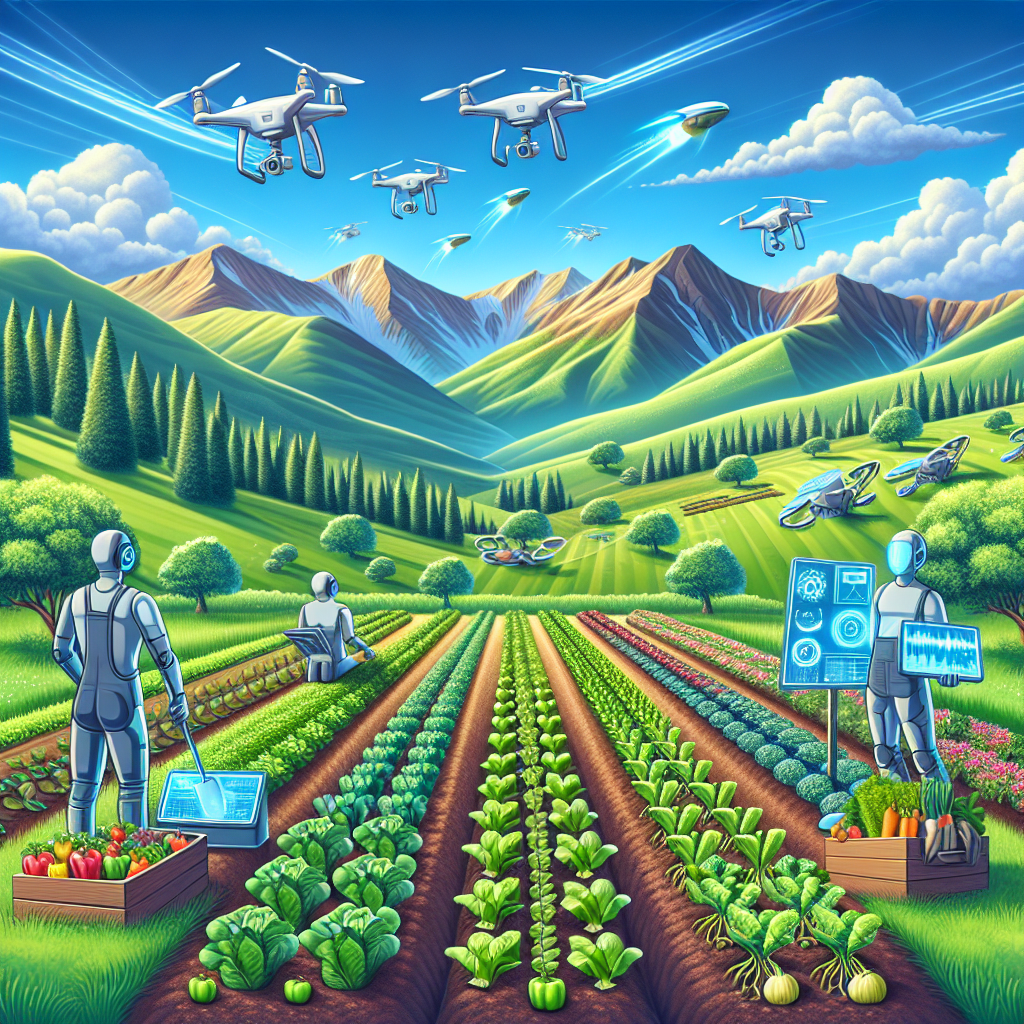Introduction
Vegetable gardening in Colorado presents unique challenges due to its varying climate and conditions. Understanding the specific requirements and best practices for gardening in Colorado is essential for achieving successful vegetable growth. This article serves as a comprehensive guide, providing expert advice and insights on various aspects of vegetable gardening in Colorado.
I. Climate in Colorado
Colorado's climate is known for its distinct characteristics, including high altitude, dry climate, and temperature fluctuations. These factors significantly impact vegetable growth and require careful consideration when planning and maintaining a vegetable garden. To better understand Colorado's climate, it is important to examine its climate zones.
"Colorado falls under several distinct climate zones, ranging from high mountain areas to semi-arid plains. The varying elevations and weather patterns across the state make it critical for gardeners to choose appropriate plant varieties and adjust their gardening practices accordingly." (Gardening Expert, Colorado Horticultural Society)
II. Soil Preparation
Preparing the soil is a crucial step in vegetable gardening, especially in Colorado where heavy clay or sandy soils are common. Soil testing and analysis are important to determine its composition and nutrient levels. Based on the results, amendments can be made to improve soil structure and fertility.
"In Colorado, soil amendments such as compost, well-rotted manure, and organic matter play a vital role in improving soil structure and enhancing its water-holding capacity. Adding organic matter helps break up heavy clay soils, while sandy soils benefit from increased nutrient retention." (Soil Scientist, Colorado State University)
III. Vegetable Selection
Choosing the right vegetable varieties is crucial for success in Colorado's climate and growing conditions. It is important to select plants that can tolerate fluctuations in temperature, drought conditions, and short growing seasons. Colorado-specific vegetable varieties are readily available and should be chosen based on their adaptability.
"Vegetable varieties that have been specifically bred or selected for Colorado's climate and conditions are more likely to thrive. Look for varieties that have been developed to withstand temperature fluctuations and have shorter maturity dates." (Horticulturalist, Colorado Vegetable Variety Program)
IV. Planting and Timing
Timing is crucial in vegetable gardening, as Colorado's climate dictates specific planting dates for different crops. Starting seeds indoors and transplanting seedlings is a common practice to extend the growing season. Understanding the ideal planting dates and proper transplanting techniques is essential for successful vegetable growth.
"In Colorado, early-season crops such as lettuce, spinach, and radishes can be planted as soon as the ground can be worked, while warm-season crops like tomatoes and peppers should not be planted until after the danger of frost has passed. Starting seeds indoors can also help lengthen the growing season." (Master Gardener, Colorado State University Extension)
V. Watering and Irrigation
Water is one of the most critical factors for successful vegetable gardening in Colorado's arid climate. Efficient watering practices must be adopted to prevent water waste and ensure healthy plant growth. Drip irrigation systems and proper watering techniques are recommended.
"Drip irrigation is a highly efficient method for watering vegetables, as it delivers water directly to the root zone, minimizing evaporation and runoff. Splitting watering sessions into multiple shorter intervals with sufficient time between them allows the soil to absorb water effectively." (Water Conservation Expert, Colorado Department of Agriculture)
VI. Pest and Disease Management
Pests and diseases can affect vegetable plants in Colorado, but adopting organic and integrated pest management approaches can help minimize their impact. Regular scouting, prevention, and control measures are vital in maintaining a healthy garden.
"Colorado vegetable gardens commonly face pests such as aphids, flea beetles, and cutworms. Encouraging beneficial insects and using methods like crop rotation, row covers, and organic pesticides can help control these pests while minimizing harm to the environment and human health." (Entomologist, Colorado State University Extension)
VII. Harvesting and Preservation
Knowing the right time to harvest vegetables ensures peak flavor and nutritional value. Proper harvesting techniques and post-harvest preservation methods are essential to maximize the shelf life of harvested crops. Storing harvested vegetables under appropriate conditions further extends their usability.
"Vegetables should be harvested when they have reached their peak quality. Timing can vary for different crops, but generally, harvest when the fruits or vegetables are fully mature but still firm. Proper storage, such as refrigeration or canning, helps maintain freshness and prolong shelf life." (Master Preserver, Colorado State University Extension)
VIII. Community Gardens and Resources
In Colorado, community gardens provide an excellent opportunity for gardening enthusiasts to connect and share their knowledge and experiences. Joining local gardening clubs and organizations not only offers a sense of community but also provides access to valuable resources and expertise.
"Community gardens are a great way to learn from experienced gardeners and exchange gardening tips and tricks. Local gardening clubs and organizations often organize workshops, events, and seed exchanges, creating a supportive network for gardeners of all skill levels." (Garden Educator, Denver Botanic Gardens)
IX. Conclusion
Successfully growing vegetables in Colorado requires understanding and implementing strategies tailored to the state's unique climate and growing conditions. By considering factors such as climate, soil preparation, vegetable selection, planting and timing, watering and irrigation, pest and disease management, harvesting and preservation, and community gardening resources, gardeners can optimize their chances of success.
X. Call to Action
I encourage readers to share their experiences and expertise on vegetable gardening in Colorado. By engaging in professional dialogue, we can learn from one another and further enhance our skills and knowledge. Additionally, I recommend reaching out to local gardening experts or professionals for personalized advice and guidance. Let's continue to explore and discover the joys and rewards of vegetable gardening in Colorado!
Topics




